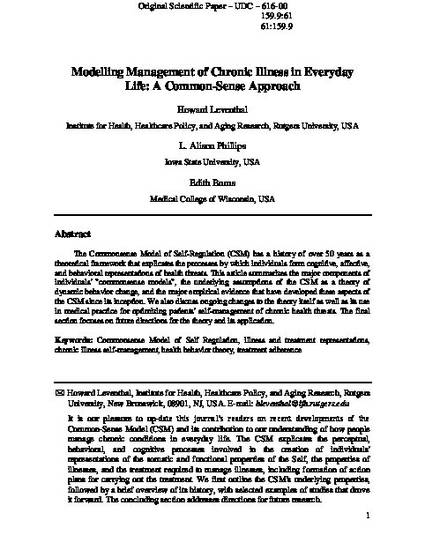
Article
Modelling management of chronic illness in everyday life: A common-sense approach
Psychological Topics
Document Type
Article
Disciplines
Publication Version
Published Version
Publication Date
1-1-2016
Abstract
The Commonsense Model of Self-Regulation (CSM) has a history of over 50 years as a theoretical framework that explicates the processes by which individuals form cognitive, affective, and behavioral representations of health threats. This article summarizes the major components of individuals' "commonsense models", the underlying assumptions of the CSM as a theory of dynamic behavior change, and the major empirical evidence that have developed these aspects of the CSM since its inception. We also discuss ongoing changes to the theory itself as well as its use in medical practice for optimizing patients' self-management of chronic health threats. The final section focuses on future directions for the theory and its application.
Copyright Owner
Psychological Topics
Copyright Date
2016
Language
en
File Format
application/pdf
Citation Information
Howard Leventhal, L. Alison Phillips and Edith Burns. "Modelling management of chronic illness in everyday life: A common-sense approach" Psychological Topics Vol. 25 Iss. 1 (2016) p. 1 - 18 Available at: http://works.bepress.com/lalison-phillips/11/

This is an article from Psychological Topics 25 (2016): 1. Posted with permission.